Mangalore, December 4: “When religious passions were inflamed and there was tremendous pressure to convert India into a Hindu state during the Partition in 1947, it was the greatness of our leaders who resisted it and made the state a secular one,” said Justice Markandey Katju.
He was speaking on 'Constitutional Jurisprudence' at the sixth of a series of Silver Jubilee Endowment Lectures organised by SDM Law College and Centre for Post Graduate Studies and Research in Law, Mangalore, at BBM Conference Hall in the college here on Tuesday.
Giving a vivid picture on the justice dispending system in India and the role of constitution in it, he said that the basic principles set up in our constitution were not creations of our own struggles, but borrowed from Western concepts and transplanted in our backward and semi-feudal society. Thus, while our constitution is modern, our society is still backward. However, India has progressed largely than our neighbouring states because of our secular constitution. The judiciary ensures that the fundamental rights of the people are protected as directed by the Indian Constitution, he said.
Diving into the historical significance of the Indian Constitution, he said that 93 percent of the inhabitants were originally migrants from various regions, which explained the country's tremendous diversity. To remain united, it is essential that all communities, religions and ethnic groups in India are given equal respect and are treated equally. It is also essential to remain united and maintain economic unity in the country, as it provides the huge market necessary for a massive modern industry. Federalism, which caters to regional aspirations, is of vital importance to the unity of India. Akbar was the real creator of modern India who employed the policy of universal tolerance, which was carried forward by Nehru, he said.
Interacting with the students, he said that the Jan Lokpal bill in the present format, which proposed to include over two crore employees in the central government, was not feasible, as it might tend to generate lakhs of complaints and increase corruption. He said that such public clamor about the bill would not help in curbing corruption.
He further said that he was in favour of sting operations and video recordings of court proceedings for transparency in the system.
Secretary of Ujire SDM Educational Society Dr B Yashovarma released the journal 'SDM Law News' and felicitated Justice Katju on the occasion.
Principal and Chairman of SDM Law College Dr B K Ravindra welcomed the gathering, while co-ordinator Dr Tharanath proposed a vote of thanks. Member of PCI Rajeev Ranjan Nag and Principal of SDM College of Business Management Dr K. Devaraj were present. Meghana Ballal compered the programme.
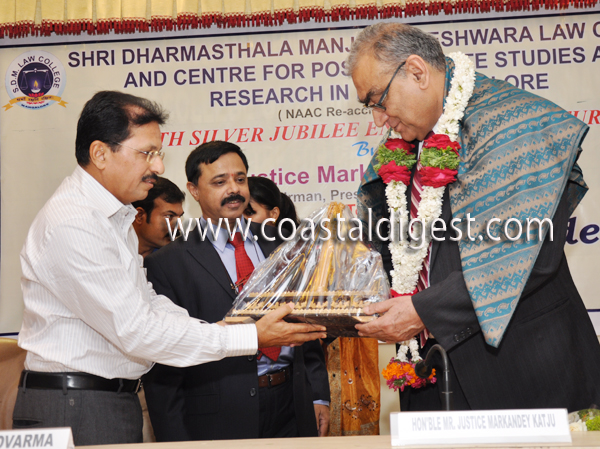
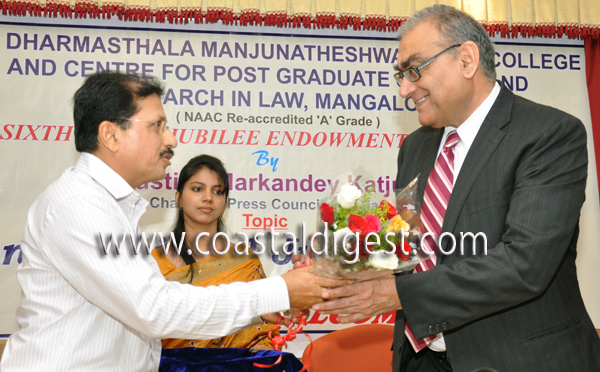
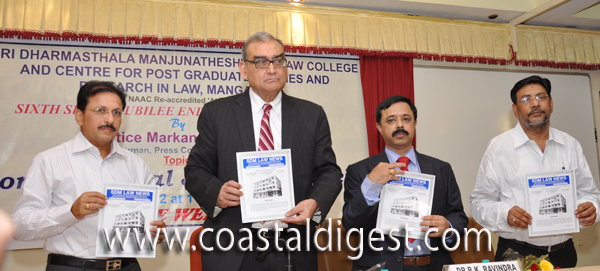
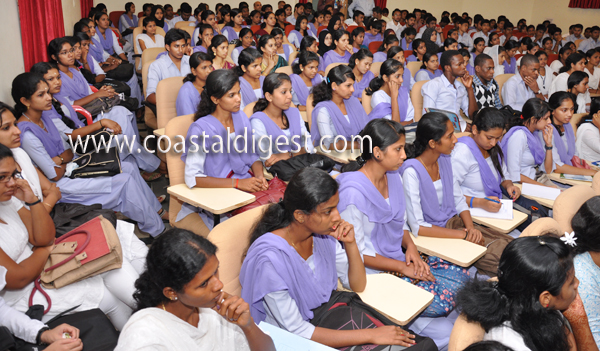
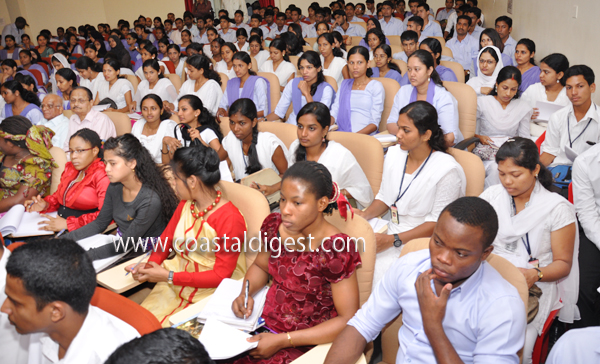
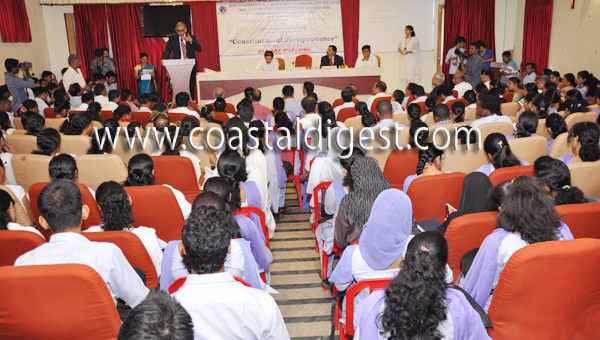
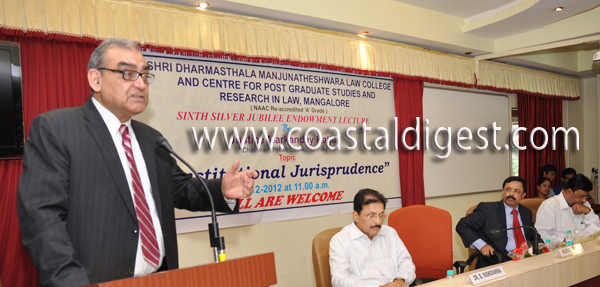
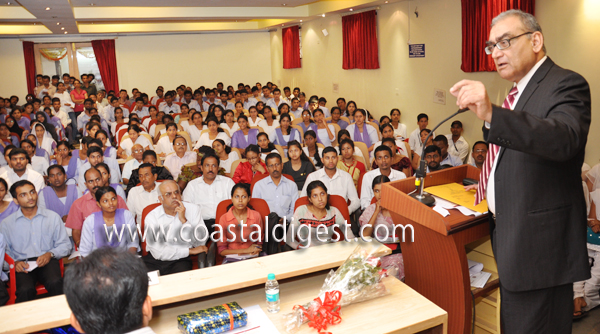
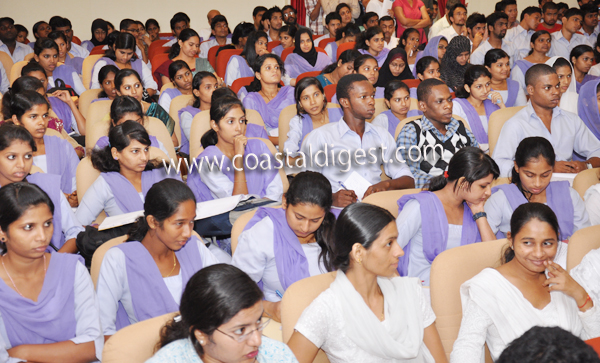
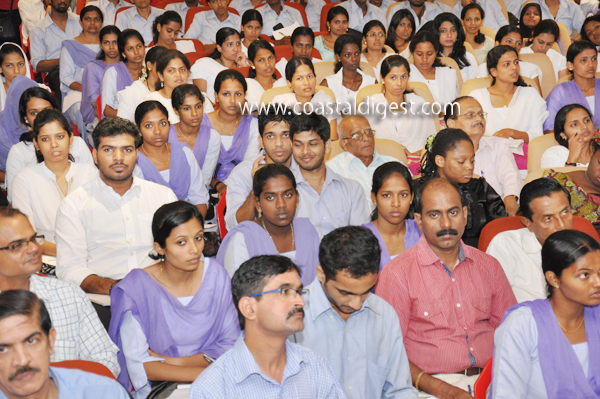
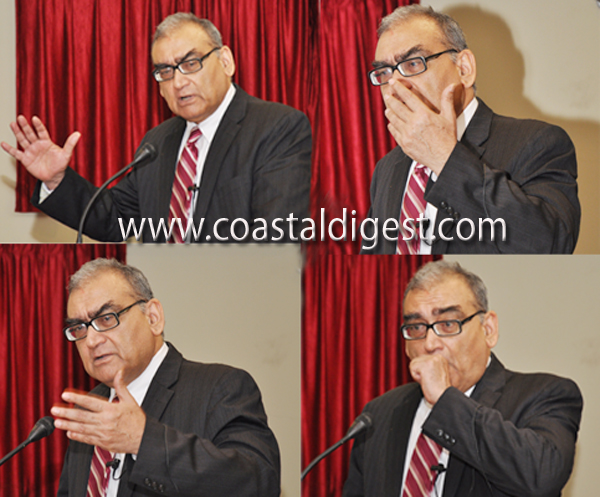
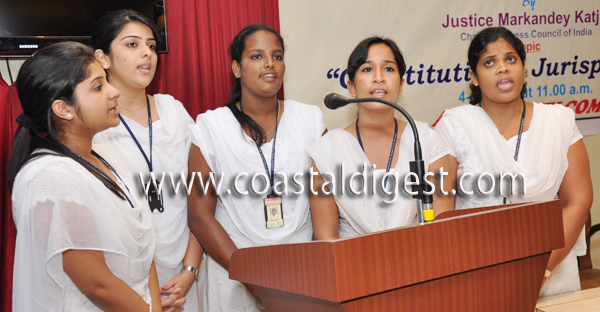
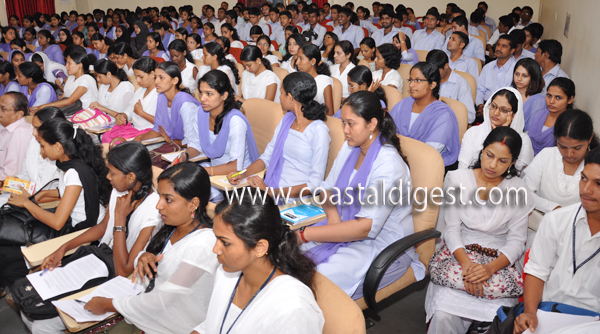
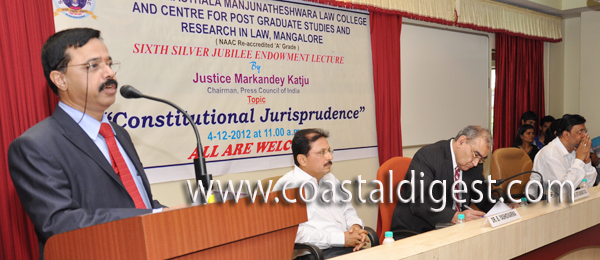
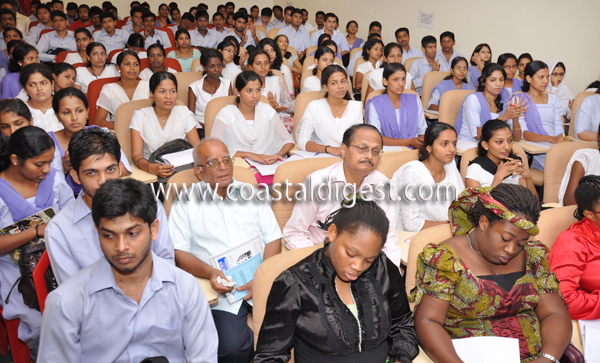





Comments
Add new comment